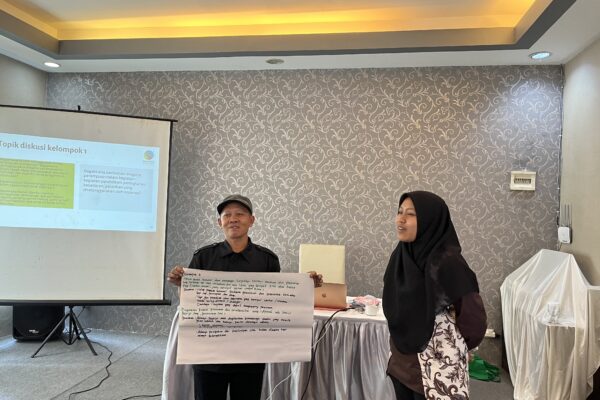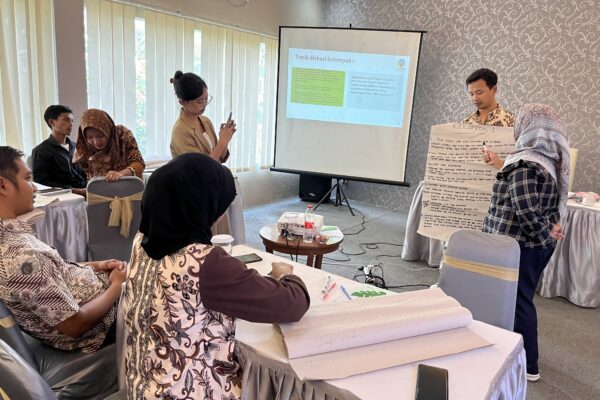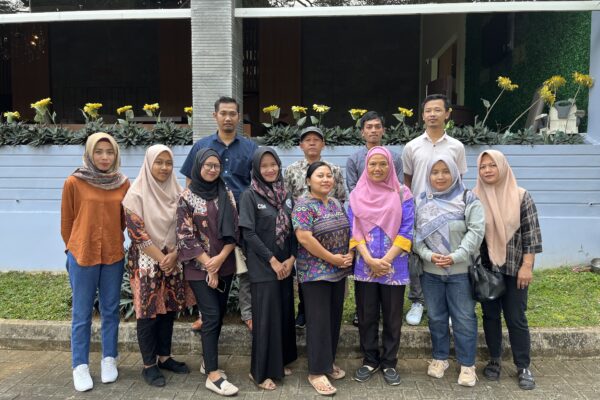In today’s world, achieving gender equality is a pressing global imperative. In organizations, Gender strategy efforts have been the key to fostering collaborations and synergy to combat gender-related violence and implement impactful programs to protect and empower women. In Java, Indonesia, gender strategy consultations gained huge significance due to the distinctive social, economic, and political dynamics within the country. Despite Indonesia’s notable development strides in recent decades, gender inequality persists as a serious concern, especially in women’s access to education, equal employment opportunities, and participation in public policy.
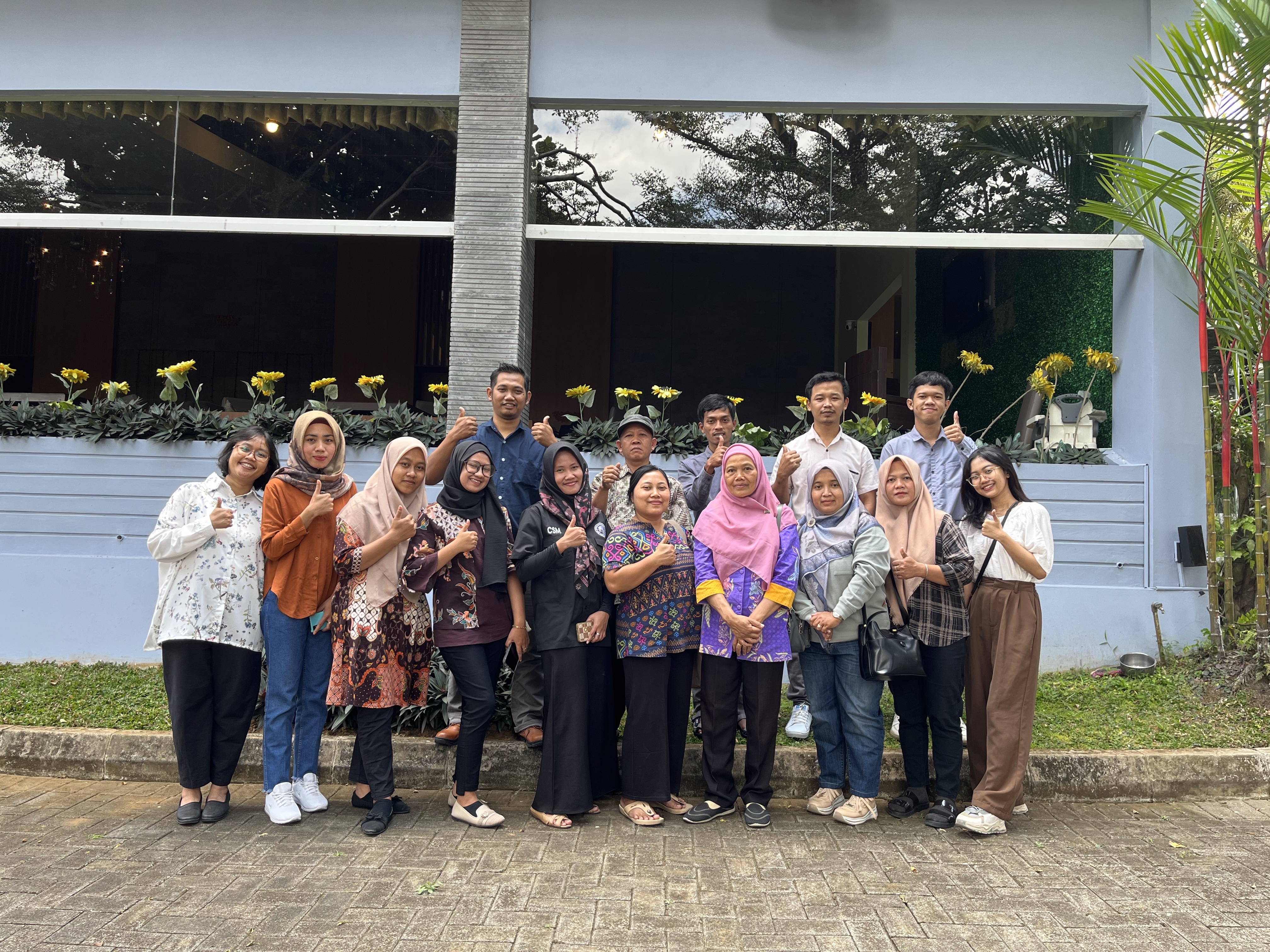
Despite the prerequisite knowledge, upto 25% of respondents have acknowledged never engaging in gender-related training initiatives, and an equal percentage expressed a lack of substantial perception regarding gender equality within their collaborative environment. Recognizing this, Fairtrade NAPP conducted a gender strategy consultation which also became a gender education venue for members and Fairtrade producer organization on the island of Java. This 2-day event witnessed the participation of 12 individuals from 6 Fairtrade certified cooperatives in Java, Indonesia. With a focus on improving gender equality, inclusivity and empowerment, this consultation aims to identify areas where gender gaps still exist and understand the unique issues women face in achieving equality and opportunity in these areas. Recognizing the need for comprehensive solutions, this consultation has been tailored after considering the cultural diversity and the varying social contexts across regions.
“This activity is very impressive because, with the gender strategy consultation, we as cooperative administrators and cooperative members can better understand the importance of implementing areas that are safe, free of violence and fair for both men and women. We hope this activity can be carried out again and become a regular agenda involving more participants.” Mita Oktaviana, Surya Abadi Kayumas, Indonesia.
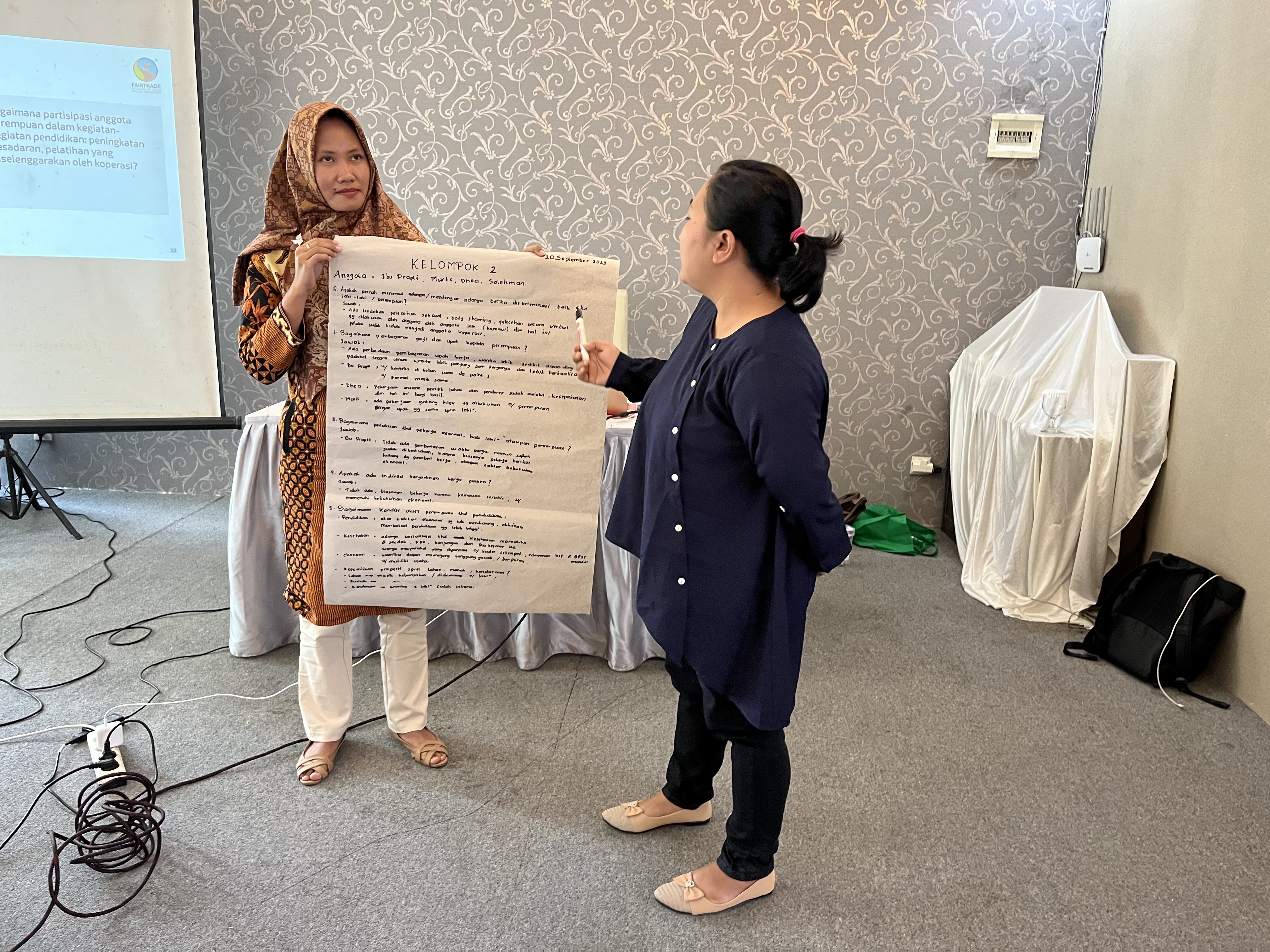 The first day explored the fundamentals of gender equality and its integral connection to the enforcement of human rights. Emphasizing the intersectionality of gender equality, it actively addressed related human rights issues through various standards, including those pertaining to workers’ rights, anti-discrimination, anti-violence, gender equality, and child protection. The discussion also introduced the concepts of social compliance and HREDD, highlighting the imperative for contemporary businesses to adhere to human rights enforcement.
The first day explored the fundamentals of gender equality and its integral connection to the enforcement of human rights. Emphasizing the intersectionality of gender equality, it actively addressed related human rights issues through various standards, including those pertaining to workers’ rights, anti-discrimination, anti-violence, gender equality, and child protection. The discussion also introduced the concepts of social compliance and HREDD, highlighting the imperative for contemporary businesses to adhere to human rights enforcement.
“Personally, I am very happy about this gender strategy consultation activity because those who didn’t understand at first have come to understand gender equality. I will apply the things that have been taught here to cooperatives so that both women and men have equal rights so that there is no discrimination between men and women. Thank You” – Hasan Subejo, Koperasi Sari Manggar, Alami, Indonesia.
Additionally, the presentation covered the background of the gender strategy outlined by the Ministry of National Development and the Ministry of Women Empowerment and Child Protection, Indonesia. Participants were encouraged to assess the conditions within their respective organizational environments concerning women’s participation and compliance with Fairtrade Standards related to human rights. They were prompted to evaluate the organization’s progress, identify past actions, and outline future initiatives. The focus of the conversation centred around five key aspects:
- Women’s participation in the producer organizations.
- Awareness of human rights (specifically workers’ rights) and gender equality.
- Prevention of violence and abuse.
- Women’s empowerment.
- Child protection (addressing child labor, child exploitation, and violence).
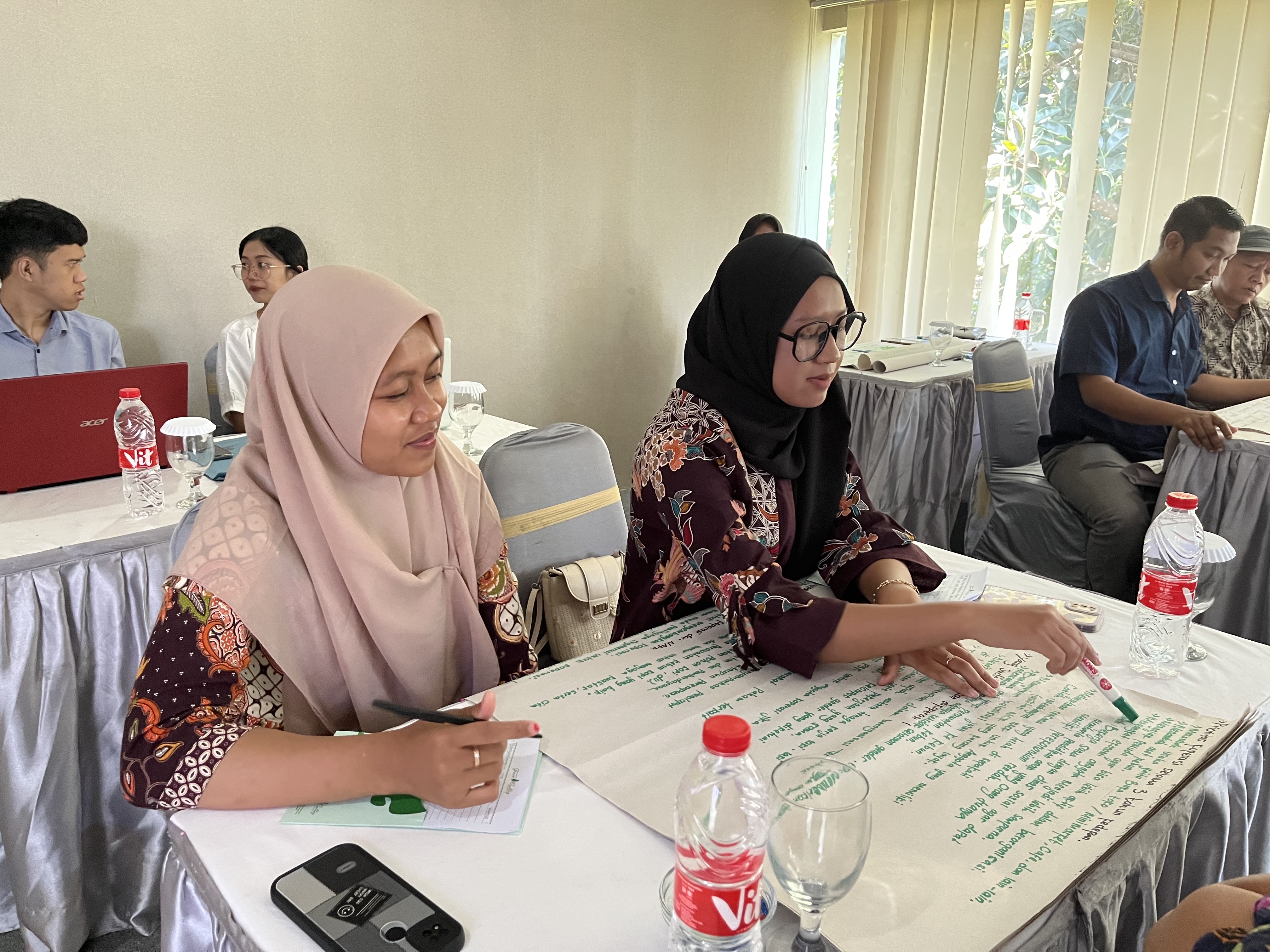 The second day of the consultation commenced with a review of the previous day’s work. Each cooperative was encouraged to pinpoint specific areas for emphasis in achieving gender equality, outlining past actions and future plans while indicating the support required from NAPP. In the concluding session, the facilitator prompted participants to engage in an open discussion to collectively identify the top three priorities that NAPP should focus on to develop a country-level strategy. This final session, deemed complex, transitioned from a group discussion to a direct open forum discussion.
The second day of the consultation commenced with a review of the previous day’s work. Each cooperative was encouraged to pinpoint specific areas for emphasis in achieving gender equality, outlining past actions and future plans while indicating the support required from NAPP. In the concluding session, the facilitator prompted participants to engage in an open discussion to collectively identify the top three priorities that NAPP should focus on to develop a country-level strategy. This final session, deemed complex, transitioned from a group discussion to a direct open forum discussion.
The participants expressed a sense of comprehension regarding the presented material and reported an enhanced understanding of gender issues following their participation in the activity. This consultation had a direct impact on the producer organizations. The newly associated small producer organizations have gained awareness of the Fairtrade Standard concerning Human Rights, while others have received inputs to enhance their efforts in aligning with the human rights-related Fairtrade Standard with increased awareness.
Aligned with the UN Sustainable Development Agenda, particularly Goal 5 on Gender Equality, this consultation facilitated the integration of gender considerations into various development programs, ensuring inclusion and improved performance across diverse social and cultural contexts. By involving input and participation from diverse stakeholders, gender strategy consultations play a vital role in crafting concrete steps to tackle gender inequality, thereby fostering a more just and inclusive society. Recognizing the pursuit of gender equality as both a moral imperative and a fundamental catalyst for building resilient, inclusive communities, Fairtrade continues to champion initiatives that empower and uplift individuals across various social and cultural contexts.


